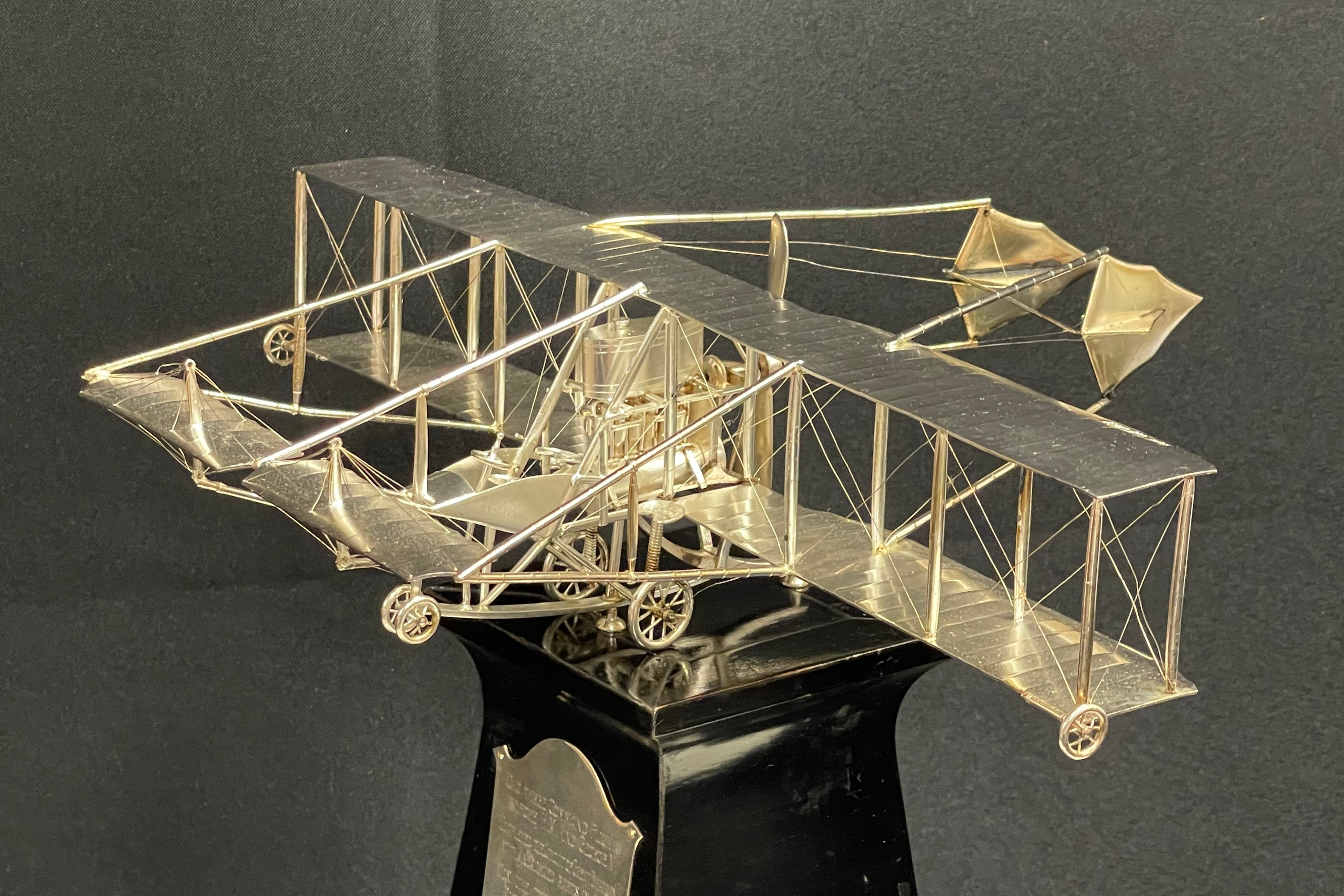Archive of British aviation pioneer goes under the hammer
US-born Samuel Franklin Cody was the first person to pilot a powered and sustained flight in the UK.

Your support helps us to tell the story
From reproductive rights to climate change to Big Tech, The Independent is on the ground when the story is developing. Whether it's investigating the financials of Elon Musk's pro-Trump PAC or producing our latest documentary, 'The A Word', which shines a light on the American women fighting for reproductive rights, we know how important it is to parse out the facts from the messaging.
At such a critical moment in US history, we need reporters on the ground. Your donation allows us to keep sending journalists to speak to both sides of the story.
The Independent is trusted by Americans across the entire political spectrum. And unlike many other quality news outlets, we choose not to lock Americans out of our reporting and analysis with paywalls. We believe quality journalism should be available to everyone, paid for by those who can afford it.
Your support makes all the difference.An archive of memorabilia dedicated to a pioneer of British aviation is expected to fetch more than £70,000 when it is sold at auction.
US-born Samuel Franklin Cody was the first person to pilot a powered and sustained flight in the UK.
He took off from Farnborough Common in Hampshire in October 1908 for a flight which lasted 30 seconds. Cody was killed five years later in a plane crash at the same site.
His maiden flight took place six weeks after the Wright brothers flew for the first time in the US.
Cody was born in Davenport, Iowa, in 1867 and trained as a cowboy, becoming a popular wild west show performer before moving to England in 1890.
He later developed aeroplanes with the backing of the War Office and became a British citizen by naturalisation in 1909.
In October 1908 he took to the skies in his British Army Aeroplane No 1, which he had designed and constructed. He reached about 18ft and flew for about 1,400ft.
It was the first official sustained and controlled flight of a powered machine in the UK.
He was in the air for 30 seconds and flew over a clump of trees before crash-landing after being hit by a gust of wind, damaging the machine.
In August 1913 he and his passenger, Hampshire cricketer William Evans, died when they fell out of their aircraft and plunged 300ft to the ground after it broke up during a test.
The leading item going under the hammer at Henry Aldridge & Son auctioneers in Devizes, Wiltshire, is a solid silver Shell Motor Spirit Trophy, from 1912, by Mappin and Webb, which he was awarded to celebrate his work in aviation.
It is tipped to fetch up to £50,000 while the other items are expected to sell for another £20,000 combined on November 19.
Auctioneer Andrew Aldridge said: “Cody was one of the pioneers of early flight. Most people have heard of the Wright Brothers but Cody was every bit as important in the development of aviation.
“When Cody was testing his first aeroplane, he tied it to a tree and with the aid of a Salter Spring Balance assessed the thrust of its propeller.
“The tree became known as the Cody Tree and survived for many years.
“Later an aluminium replica was cast by apprentices of the Royal Aircraft Establishment, and for many years continued to mark the spot.
“His work stimulated public interest in aviation and led to the formation of the Royal Flying Corps and the Royal Naval Air Service.
“The archive is being sold via a direct descendant. This archive bears tribute to one of the early 20th century’s greatest technical pioneers.”